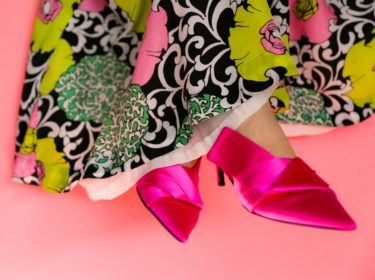Looking to the future of fashion is looking into making the fashion industry more sustainable. The fashion industry is currently on the top of the list for the most polluting industries in the world, second to the oil industry.
The world of fashion is looking for more ways to make sustainable garments and fiber flax is one of the top solutions to help eliminate waste in this ever-growing industry. Making a collection takes a lot of fabric and fiber to create certain textiles, especially synthetic fibers.
Synthetics is 60 percent of the world’s clothing and is one of the biggest waste factors in the fashion industry. A group of Oregon textile producers called Fiberevolution are utilizing locally-grown flax to find a solution to the problems of synthetics, to challenge fast fashion.
Their textile production method is not only helping the fashion industry, but is also contributing to restoring the health of the land and local economy. The Fiberevolution network of fiber flax producers are working within a 300-mile regional range to bring back linen and the use of woven fabric.
The flax is easy to grow with little needed to grow and harvest the crop. Flax also grows quickly withing 100 days of plating the seed. These growers also have access to equipment for an easy harvest and quick re-planting of a new crop.
Flax also naturally fights weeds and doesn’t take a lot of water, meaning less waste and saved resources through crops. Another benefit is that there is no irrigation required through utilizing weather rain patterns.
Flax leaves a small carbon footprint and is one of the strongest fibers that can be used for clothing with natural flame resistance for textiles. This crop can benefit many industries outside of fashion including paper, upholstry, and the fishing industry.
Only 30 percent of the flax plant is actual fiber but the rest of the plant can be reused as materials for other products, which is rare for crops. Oregon also has the perfect environment for sustainable flax crops with mild temperatures and fertile soil.
Linen only makes up less than 1 percent in the textile industry and Fiberevolution is working to change this through generating viable flax seeds and fundraising for specialized processing equipment.





